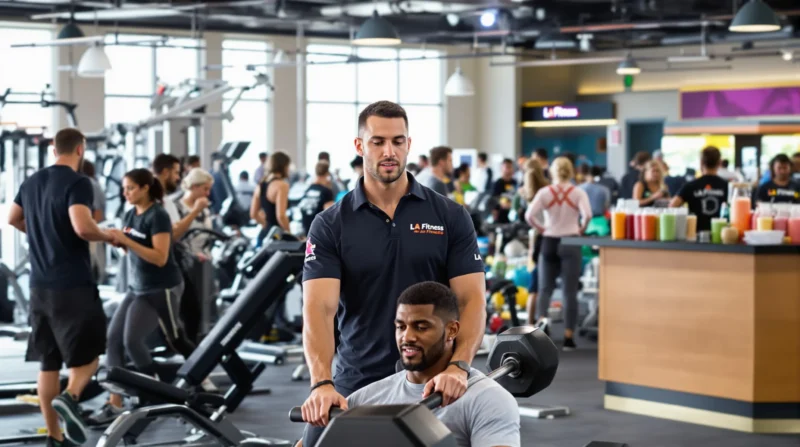
The relationship between fitness and nutrition is dynamic and symbiotic, deeply intertwined in our pursuit of optimal health and well-being. While exercise and physical activity contribute to fitness gains, proper nutrition provides the essential building blocks and energy required to support and enhance performance.
At its core, fitness encompasses various elements, including cardiovascular endurance, muscular strength, endurance, flexibility, and body composition. Nutrition is vital in these areas, providing the necessary nutrients, fuel, and support to optimize athletic performance, facilitate muscle growth and repair, and maintain overall health.
This discussion will delve into the multifaceted relationship between fitness and nutrition, exploring key aspects that demonstrate their interconnectedness. From fueling performance and supporting muscle development to managing weight and promoting overall health, the impact of nutrition on fitness is undeniable.
Additionally, we will touch upon the significance of nutrient timing, emphasizing how the timing and composition of meals and snacks before, during, and after exercise can maximize workout performance and aid in effective recovery.
It’s essential to recognize that the relationship between fitness and nutrition is highly individualized, as each person has unique nutritional requirements based on their fitness goals, body composition, activity levels, and overall health status. Therefore, personalized approaches guided by qualified professionals, such as registered dietitians or nutritionists, can provide tailored advice and support to optimize fitness and nutrition strategies.
By understanding the profound connection between fitness and nutrition, you can harness their combined power to achieve and maintain a healthy, active lifestyle. Let’s explore how these two crucial components intertwine to support your journey toward improved fitness, enhanced performance, and overall well-being.
- Fueling Performance: Proper nutrition provides the necessary fuel to support physical activity and enhance athletic performance. Carbohydrates are the primary energy source during exercise, while proteins help repair and rebuild muscle tissues. Adequate intake of carbohydrates, proteins, and healthy fats ensures optimal energy levels, endurance, and recovery.
- Muscle Development and Repair: Exercise, especially resistance training, stimulates muscle growth and repair. Protein intake is essential for building and maintaining lean muscle mass. Consuming adequate protein and regular exercise supports muscle development, strength, and recovery.
- Weight Management: Nutrition plays a fundamental role in weight management. A balanced diet with appropriate caloric intake in line with energy expenditure helps achieve and maintain a healthy weight. Regular physical activity with a balanced diet supports weight loss, muscle retention, and overall body composition improvement.
- Nutrient Timing: Proper nutrition timing before, during, and after exercise can optimize performance and recovery. A balanced meal or snack that includes carbohydrates and protein before a workout provides energy and promotes muscle protein synthesis. Post-workout nutrition, such as a combination of carbohydrates and protein, helps replenish glycogen stores and facilitates muscle recovery.
- Overall Health and Well-being: Regular exercise and a nutritious diet contribute to health and well-being. A balanced diet that includes a variety of fruits, vegetables, whole grains, foods with arginine, lean proteins, and healthy fats provides essential vitamins, minerals, and antioxidants necessary for optimal bodily functions, immune system support, and disease prevention. Exercise helps improve cardiovascular health, boosts mood, reduces stress, and enhances mental well-being.
- Personalized Approach: The relationship between fitness and nutrition is highly individualized. Different fitness goals, activity levels, and body compositions require tailored nutritional approaches. Consulting a registered dietitian or nutritionist can provide personalized guidance based on individual needs, considering factors such as body composition, specific exercise goals, and underlying health conditions.
It is important to note that maintaining a healthy balance between fitness and nutrition is key. Extreme dietary restrictions, excessive exercise, or an unhealthy relationship with food and exercise can negatively affect physical and mental health.
Adopting a sustainable and balanced approach that combines regular physical activity with a nutritious diet is the foundation for long-term health and well-being.












